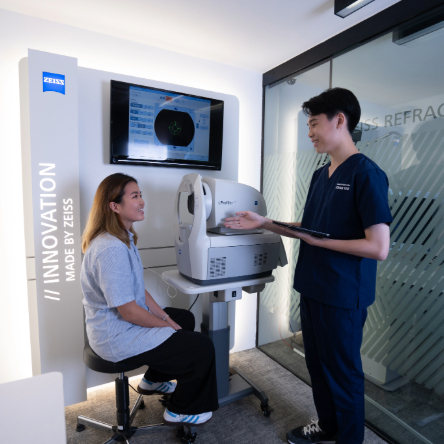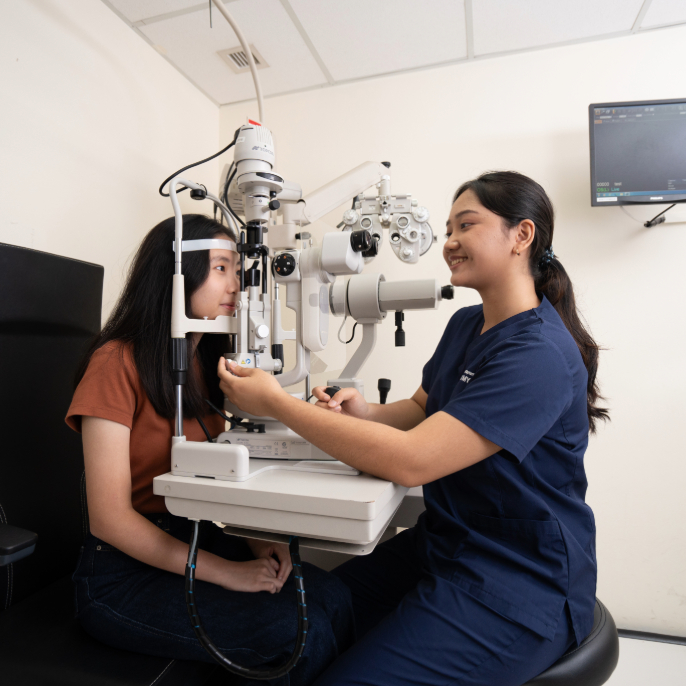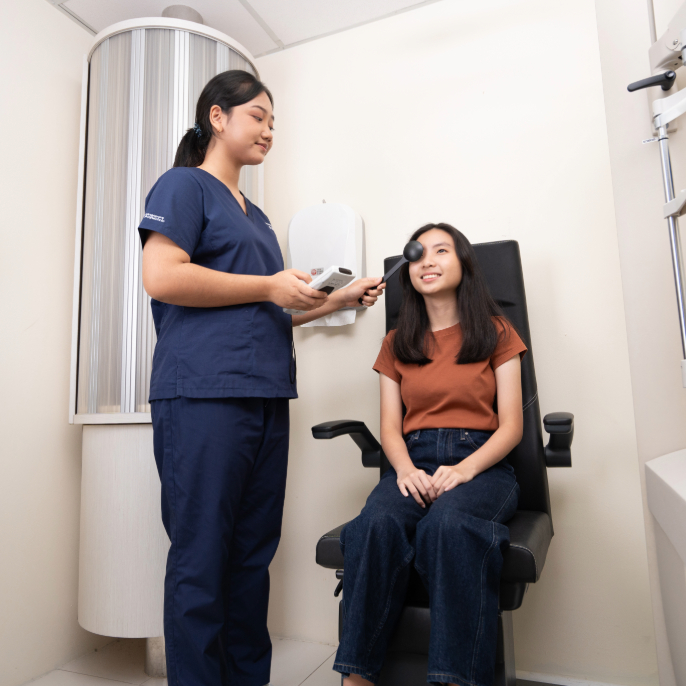If you’re passionate about helping people see better and applying science to real-world problems, the Diploma in Optometry is ideal. You’ll train at the in-house SP Optometry Centre, mastering advanced techniques in vision correction, disease detection, and patient care. Benefit from industry attachments and modern facilities, so that you graduate fully prepared for a successful career in optometry.
In addition, you will graduate with a Minor upon the completion of a suite of related elective modules. SP offers 6 Minors for you to choose from:
Please note: Course structure is subject to change.
The SP elective framework offers students options to pursue their passion and/or meet different career needs, and is an integral part of the holistic education we seek to provide to our students.
Learn about SP Elective Framework
The Common Core Curriculum equips you with essential human and digital skills to succeed in a changing world. Electives let you explore passions or tailor your studies to specific career goals, ensuring you're well-rounded.
Learn about Common Core Curriculum

What are the eligibility requirements for optometry?
You must meet the following criteria to qualify for the Diploma in Optometry:
Applicants with severe physical impairment may encounter difficulties meeting the course requirements and expectations. Please refer to the Optometrists & Opticians Board (OOB) Professional Practice Code and Guidelines on “Fitness to Practice” for guidance. Interested applicants with any of these conditions are advised to contact Singapore Polytechnic for more information.
Optometry is ideal for those who are empathetic, adaptable, and curious. If you enjoy connecting with people from all walks of life and have strong people skills, this course is for you. Being process-oriented and having a genuine interest in science will also help you thrive, as you'll use cutting-edge technology to examine eye health and build trust with patients.
SP offers many scholarships to recognise talent and service, from Year 0 to after graduation. These scholarships provide tuition fee waivers and chances to represent SP. They are awarded for academic excellence, contributions to arts or sports, and community service. Edusave awards and external sponsorships are also available.

Optometry at SP prepares me for the future.
To succeed in optometry, you need real-world practice.
Supported by renowned brands like Zeiss and EssilorLuxottica, SP’s Optometry Centre, is where you’ll perform eye examinations and improve your clinical skills using advanced tools like the Ultra-widefield Fundus Camera and OCT.
These facilities help you understand the basics and gain real experience so you’re prepared for a career in eye care.
Optometry at SP prepares me for Singapore.
Optometry in Singapore presents substantial opportunities, driven by one of the highest myopia rates globally and an aging population with increasing eye care needs. The demand for myopia management, early disease detection, and comprehensive eye care is rising. With advancements in digital tools, optometrists can provide more precise care, making this field crucial and rapidly expanding in Singapore and the surrounding region.
Optometry at SP prepares me for the world.
Optometry includes various fields you can specialise in. At SP, you can explore:
These specialisations give you a broad understanding of optometry, preparing you for a versatile career in eye care.
SP students take on 22-week internships at various organisations, including startups, SMEs, MNCs, and government agencies. Optometry students have interned at places like Johnson & Johnson Vision Care, EssilorLuxottica, Zeiss Vision Care, Eagle Eye Centre and optical shops.
Some students have made notable contributions, even outperforming university interns. Many who start as interns are offered advanced positions like Clinical Optometrists. These opportunities provide practical knowledge and a strong start to your optometry career.
A good SP internship offers meaningful work, learning opportunities, and professional growth. You'll gain industry insights, network with professionals, and receive mentorship to enhance your confidence and employability. SP internships often lead to higher starting salaries and informed career decisions, providing a strong foundation for your future.
Overseas exposure is important because it expands your perspective and helps you understand globalisation. As Singapore is a global city, working with different cultures is essential.
Optometry students have opportunities for study trips and community service projects to neighbouring countries like Malaysia, Indonesia and Cambodia. These experiences broaden your view and enhance your skills. Being involved in CCAs also provides chances to represent Singapore internationally.
Most students who continue their education after an optometry diploma choose to specialise further or explore related fields that complement their diploma. Alumni have pursued degrees in Optometry, Medicine, Biological Sciences, and Allied Health. Common degrees include:
Graduates can apply to related degree programs at international universities and may receive module exemptions or direct entry into advanced years. For a complete list of degree options and advanced standings, visit the Advanced Standing Database.
If you’re preparing for university and want to make the most of your diploma time, an SP diploma can let you fast-track your education by 0.5-2 years!
Optometry Course Gold Medallist 2023| SP Optometry's clinical sessions, internship, and volunteering opportunities helped me gain insights into quality eye care. Guided by knowledgeable lecturers, I am equipped to diagnose, manage and educate patients on eye health. Experience gained made me a compassionate caregiver, ready to make a positive impact on those I serve.

Optometry Course Gold Medallist 2022 | Currently pursuing NUS Medicine SP Optometry has led me to develop a greater appreciation towards the healthcare sector in Singapore. I have gained insightful clinical experience through our Singapore Polytechnic Optometry centre and Internship programme. The comprehensive lessons and clinical exposure allowed me to be more confident in diagnosing and managing a patient's condition professionally. Our passionate lecturers made the learning much more engaging and interactive.

